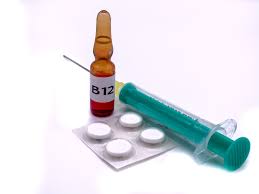Doctors warn that dengue, malaria, and viral fevers rise sharply during the monsoon
Wed 03 Sep 2025, 01:02:23

During the monsoon, we see a sharp rise in vector-borne diseases like dengue and malaria, as well as viral fevers and respiratory infections. The main causes are water stagnation, poor sanitation, and a sudden change in humidity and temperature that weakens our immunity. These illnesses can severely impact vital organs – for instance, dengue may damage the liver and platelets, malaria can affect the kidneys and brain if untreated, and viral infections may lead to prolonged lung and heart complications.
“During this season, we see a sharp rise in vector-borne diseases like dengue and malaria, as well as viral fevers and respiratory infections,” says Dr Neha Sharma, Attending Consultant, Fortis Hospital, Manesar, Gurugram. “The main causes are water stagnation, poor sanitation, and sudden changes in humidity and temperature that weaken immunity,” she adds.
Why monsoon illnesses turn dangerous
Many of these infections can affect vital organs if not treated promptly.
. Dengue may lower platelet counts and damage the liver.
. Malaria can impact the kidneys and brain if left untreated.
. Viral infections sometimes lead to long-term lung and heart complications.
What seems like a simple fever can escalate into something serious without timely medical care.
Symptoms to watch out for
Dr Sharma highlights that certain symptoms should never be ignored:
. High fever lasting more than 48 hours
. Severe body aches and
rashes
rashes
. Sudden fatigue or unexplained vomiting
. Breathlessness or chest discomfort
. Reduced urine output
“These are red flags,” she warns. “People must resist the temptation to self-medicate with antibiotics or painkillers, as this can mask symptoms and delay proper diagnosis.”
Importance of early diagnosis
Timely testing is key to identifying complications.
. Blood tests: CBC, dengue NS1, and malaria antigen tests are recommended for unexplained fever.
. Imaging: Chest X-rays help detect respiratory complications, while an ultrasound of the abdomen can reveal organ involvement.
. Blood cultures may also be needed in persistent cases.
“Even common viral fevers can have serious consequences if ignored,” Dr Sharma notes.
Precautions you shouldn’t skip
While mosquito nets and clean water are basic advice, some often-overlooked steps can make a huge difference:
. Avoid walking in floodwaters to prevent leptospirosis.
. Regularly clean AC filters and damp corners to stop fungal and bacterial growth.
. Stay hydrated; dehydration worsens the course of infections.
The monsoon brings both joy and risk. While seasonal illnesses are unavoidable, early recognition and timely treatment can prevent long-term damage. “Seeking medical attention at the first sign of unusual symptoms is the best way to safeguard your health during this season,” Dr Sharma stresses.
No Comments For This Post, Be first to write a Comment.
Most viewed from Health
AIMIM News
Latest Urdu News
Most Viewed
May 26, 2020
Should there be an India-Pakistan cricket match or not?
Latest Videos View All
Like Us
Home
About Us
Advertise With Us
All Polls
Epaper Archives
Privacy Policy
Contact Us
Download Etemaad App
© 2026 Etemaad Daily News, All Rights Reserved.

























.jpg)
.jpg)
.jpg)


